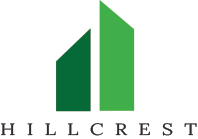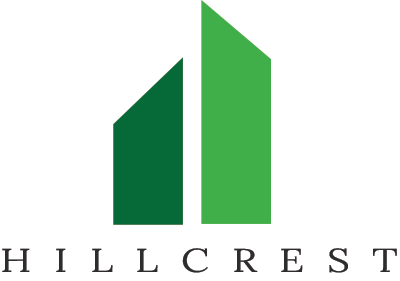What makes a successful HOA board? In simple terms, an HOA board can measure its success by how well and smoothly its community runs. Getting to that point requires both work and dedication from board members It pays to know the qualities of successful leadership, but it is also important to understand what mistakes to avoid.
Qualities of a Successful HOA Board
Every successful HOA board shares certain key traits. These traits help them serve the community effectively. Here are the qualities of a successful HOA board.
1. Integrity
Board members must have integrity, acting with honesty and transparency at all times. They must always put the community’s needs above their own personal interests.
 2. Communication Skills
2. Communication Skills
Successful HOA management requires excellent communication. Board members should know how to communicate clearly and promptly with each other, vendors and managers, and the residents. They should also practice active listening.
3. Consistency
Boards must enforce the rules in a fair and uniform manner. Consistent enforcement helps build trust. Even the appearance of favoritism and personal bias can be detrimental to an HOA board.
4. Financial Responsibility
A good HOA board understands its financial responsibilities and actively works to fulfill them. Board members must stay on top of budgeting, dues collection, and reserve planning. Financial management can be a tough subject, so board members should pursue training and ongoing education for development.
5. Problem-Solving Skills
A successful HOA board possesses problem-solving skills. Board members should always strive to look for reasonable and realistic solutions to issues. Their decisions should be based on facts.
6. Knowledge of Governing Documents
Board members must fully understand their governing documents. This includes the CC&Rs and bylaws. The governing documents dictate how the HOA should be run, what authority the board has, and what homeowners can and can’t do.
7. Respect for Homeowners
Good boards treat residents with respect. They work to ask homeowners for their feedback and input. Even if the board disagrees with homeowner opinions, they should learn to take them seriously.
 8. Teamwork
8. Teamwork
No board members can run a community on their own. It takes active collaboration and cooperation to do so. Good board members know how to work together and support each other.
9. Accountability
A successful HOA board knows how to own up to its mistakes. They don’t dance around the mistake or place blame on others. If they make an error, they will acknowledge it and make corrections as soon as possible. More than that, they will also learn from the experience.
10. Commitment to Improvement
There is always room to grow, even for competent leaders. Board members should continue to learn and should not be afraid to welcome new ideas.
Top Mistakes of an HOA Board to Avoid
Not every board gets it right, but understanding the typical mistakes can help them steer clear. Here are the most common HOA board mistakes to avoid.
1. Micromanagement
Although the board retains control over decision-making, micromanagement is never the answer. The HOA board should learn how to delegate and trust their managers and vendors. Constantly breathing down their necks and controlling every little aspect is a surefire way to strain relationships.
 2. Overly Strict
2. Overly Strict
Homeowners can make mistakes, just like the HOA board. When a homeowner violates a rule, the HOA board should not harass or humiliate them. Doing this will only pit the board against the homeowners and can only lead to animosity.
3. Taking Things Personally
Residents will complain — it is only natural. They do so because they have a vested interest in their homes and the community at large. Board members should not take complaints personally. It is important to understand that disagreements can happen and approach them with a level head.
4. Lack of Transparency
Board members should never hide information or delay communication on purpose. This can only result in distrust within the community. Residents want an open HOA board that does not keep secrets from them (unless they involve confidential matters).
5. Ignoring Homeowner Input
Homeowners associations are legally required to allow open comments at board meetings (765 ILCS 160/1-40). Still, many HOA boards allow open comments but fail to listen to them or take them seriously. When boards stop listening, conflicts will inevitably arise.
6. Neglecting Financial Planning
The HOA board should create a solid budget and reserve funds for the community. Without these financial planning tools, the association will only suffer. This can lead to significant fee increases or large special assessments, both of which are unpopular with homeowners.
7. Overstepping Authority
Boards must stick to what governing documents allow. They should never act outside of their scope of authority or else they can face legal issues.
8. Failure to Document Decisions
One of the most common mistakes HOA boards make is failing to take proper documentation. Without meeting minutes and written records, boards can’t defend their actions. Good records not only protect the HOA and its members but also give owners a chance to catch up on missed meetings.
9. Not Seeking Legal Advice
Sometimes, board members take guesses instead of asking professionals. This can lead to costly legal mistakes for the whole community. A successful HOA board should not be afraid to seek professional help.
 10. Resisting Change
10. Resisting Change
Homeowners associations grow and change over time. Boards must not be stubborn, resisting updates and opportunities to grow. Doing this will only cause the community as a whole to fall behind.
What Makes a Successful HOA Board?
Measuring success can come as a challenge, especially for board members who don’t know where to start. How can an HOA board know they are successful? Here are the signs of good HOA leadership.
- Educated Homeowners. Educated homeowners are a sign of good leadership. Successful boards always keep homeowners in the loop and make sure they know the purpose of the rules. In turn, educated homeowners follow and respect the rules because they understand their importance.
- High Satisfaction Rate. An HOA with a high satisfaction rate from homeowners means the board is doing a good job.
- Well-Maintained Community. Proper maintenance is a reflection of good management. Clean grounds and working amenities are a sign of a successful HOA board.
- Stable Finances. A board that sticks to the budget and maintains healthy reserves shows strong financial leadership.
- Smooth Meetings. Board members can know they are doing a terrific job if their meetings always go smoothly.
- Low Turnover. Another sign of good leadership is when board resignations are rare.
- Infrequent Legal Problems. A lack of lawsuits or disputes shows the board is legally compliant and handles disputes early on.
The Bottom Line
Being on an HOA board isn’t always easy, but it can be deeply rewarding. To be a successful HOA board, leaders must possess certain qualities and avoid costly mistakes. Board members should also measure their progress to ensure they are on the right track.
Hillcrest offers HOA management services to communities in Chicago. Call us today at 630-627-3303 or contact us online to request a proposal!





